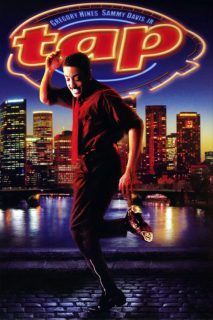
- Year: 1955
- Released: 21 Jul 1955
- Country: United Kingdom
- Adwords: Nominated for 1 BAFTA Award1 nomination total
- IMDb: https://www.imdb.com/title/tt0048188/
- Rotten Tomatoes: https://www.rottentomatoes.com/m/i_am_a_camera
- Available in: 720p, 1080p,
- Language: English
- Genre: Comedy, Drama
- Runtime: 98 min
- Writer: John Van Druten, Christopher Isherwood, John Collier
- Director: Henry Cornelius
- Cast: Julie Harris, Laurence Harvey, Shelley Winters
 | 6.4/10 |
 | 33% – Audience |
I Am a Camera Storyline
In Weimar-era Berlin, an aspiring writer strikes up a friendship with a vivacious, penniless singer.
I Am a Camera Play trailer
I Am a Camera Photos



I Am a Camera Torrents Download
| 720p | bluray | 913.08 MB | magnet:?xt=urn:btih:2D3B904F3DAD71BCB69C357B71FC77E893161161 | |
| 1080p | bluray | 1.65 GB | magnet:?xt=urn:btih:0505887FB281F2E6976A6621D6E4FE9D312013BD |
I Am a Camera Subtitles Download
I Am a Camera Movie Reviews
Surprisingly good
Hindsight is a wonderful thing. Much reviled when it first appeared, (inspiring the famous review ‘Me No Leica’), this precursor of “Cabaret” can now be looked at in comparison and it’s not half bad. It’s certainly no classic but it has its own wayward charm, (the film version of “Cabaret” follows this plot whereas the stage version changed the plot somewhat). One should, of course, resist the temptation to snicker when Laurence Harvey’s Christopher Isherwood, (it keeps the original author’s real name; God Knows what Isherwood thought of it), describes himself as ‘a confirmed bachelor’ and while Harvey is an utterly inadequate ‘hero’, (he’s virtually asexual), and Shelly Winters woefully miscast as Fraulien Landauer, (the part Marisa Berenson played in “Cabaret”), Julie Harris is a perfectly marvellous Sally, (it’s a lovely piece of comic acting), and Anton Diffring is first-rate as Fritz, the German-Jew in love with Shelly’s character. Of course, if “Cabaret” had never come along you might ask yourself would this ever have seen the light of day again. That it has been revived may not quite be cause for celebration but it’s perfectly acceptable all the same.
British film based on the play, which was based on the book, which eventually became “Cabaret”
Lots of history behind this story of Sally Bowles, party-girl in 1930s Berlin who befriends a stolid English gent amidst the Nazi uprising. Curious, rather indifferent drama isn’t helped by Julie Harris as Bowles; Harris tries hard, but she’s too intelligent a presence to be convincing as a flake and her big moments don’t come off. Non-flashy adaptation of both Christopher Isherwood’s “Berlin Stories” and John Van Druten’s subsequent play, it is sure to interest fans of Bob Fosse’s “Cabaret” as a great deal of the dialogue mirrors passages in “Cabaret” almost verbatim. Those who stumble upon it unawares will probably find the movie stilted and dull. It’s little more than a footnote now in this chain of literature and cinematic events. ** from ****
Spellbound by Julie Harris, Charmed off Our Feet
I have just seen this delightful classic again after many years, the next to last film directed by Henry Cornelius, who died three years later at the age of only 45 (the same age at which the film’s male star Larry Harvey was also to die in 1973). Three future directors were in the crew: Jack Clayton (Associate Producer), Guy Green (cinematographer), and Clive Donner (editor). This film is based upon the autobiographical story ‘Goodbye to Berlin’ by the well-known British author Christopher Isherwood, which was first turned into a play by John van Druten, then made into this film, then turned into a musical, ‘Cabaret’, and finally filmed as ‘Cabaret’, which brought the amazing Liza Minelli to world attention, with her voice which can shatter a glass at the distance of a mile. Isherwood appears as a character in the film under his own name. He was gay, but in those days that was illegal and could land him in prison, so he disguises his proclivities under the description of being what he calls ‘a confirmed bachelor’. This is the key to his Platonic relationship with the wildly eccentric, wacky, promiscuous, ever-cheerful and thoroughly unique character whom he calls Sally Bowles. The portrait of Sally Bowles in this film is a tour-de-force by the young Julie Harris, who sweeps every scene into a magical and captivating web of sparkling personal charm. What a vehicle for an actress with plenty of charm of her own! It is one of the great cinematic performances of the 1950s. Isherwood is played to perfection by the young Lawrence Harvey, in a finely-judged performance which never allows the comedy to go over the edge, and even the moments of farce bordering on slapstick remain somehow ‘almost believable’. Larry is so funny at portraying a wimpish hypochondriac. What an irony, considering the total lack of hypochondria shown by his bravery and stoicism in the last year of his life as he died from terminal stomach cancer and behaved with such dignity and lack of complaint. I knew him well in the last three years or so, and he was a generous, warm, and modest person. He adored his little girl Domino, now alas also tragically dead.This film was his finest early performance, to be followed by his spectacular work in ‘Room at the Top’ (1959), ‘Summer and Smoke’ (1961) and ‘The Manchurian Candidate’ (1962). Larry was often undervalued in his lifetime because he was too handsome, was often cast as a cad, and glamour boys are not always accepted as good actors, but many of the finest actresses played opposite him, and they were in no doubt of his abilities, and he was a strong lead in many of the most important films of his time. If he had lived beyond middle age, he would have gone from strength to strength and become a ‘grand old man’ of the screen. Sitting in his house in Hampstead one day, he gave me a glass of his usual white wine from a huge barrel which he had brought from some foreign cellar. I said he always gave me such delicious wine, what was it? He proudly answered that it was a Sancerre which he had chosen himself at the vineyard in France and had shipped over specially. He then added with extreme wistfulness: ‘You know, I’ve been waiting for four years for someone to comment on it and ask me what it is, and you are the first person who has ever done so.’ What mattered to him was to be recognised for having taste in wine,and his more glamorous friends had denied him that satisfaction. In this film, Anton Diffring gives a touching early performance as an earnest young man (later he was to have to play Nazi officers far too much, poor fellow), and the young Shelley Winters plays a rich German Jewish girl, in her usual noisy but effective manner, but it was not too difficult, as she was a noisy Jewish girl herself anyway. This film has such an air of joie de vivre about it, that it is pure delight.



